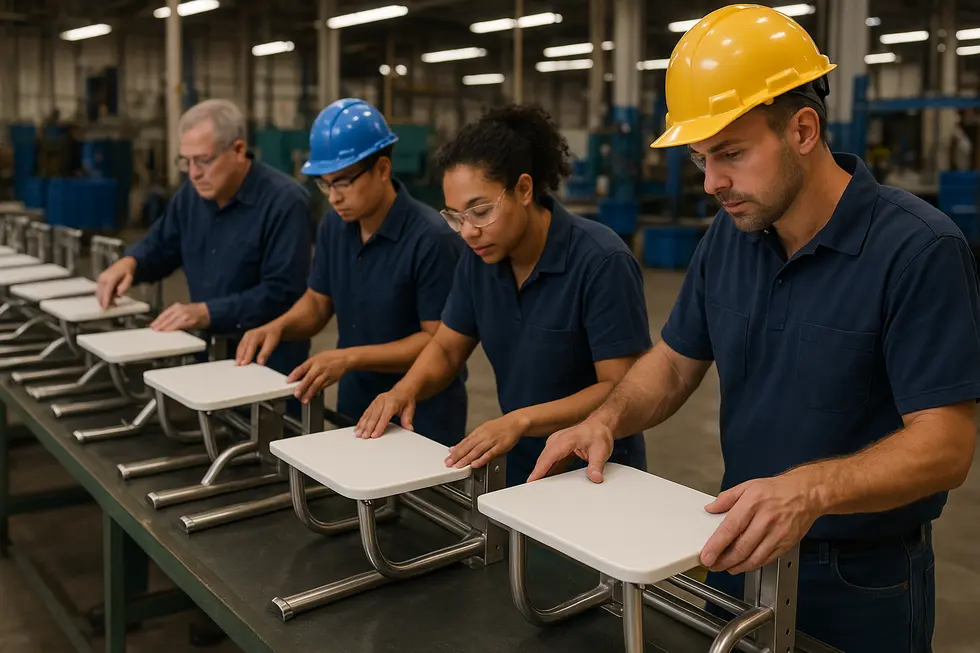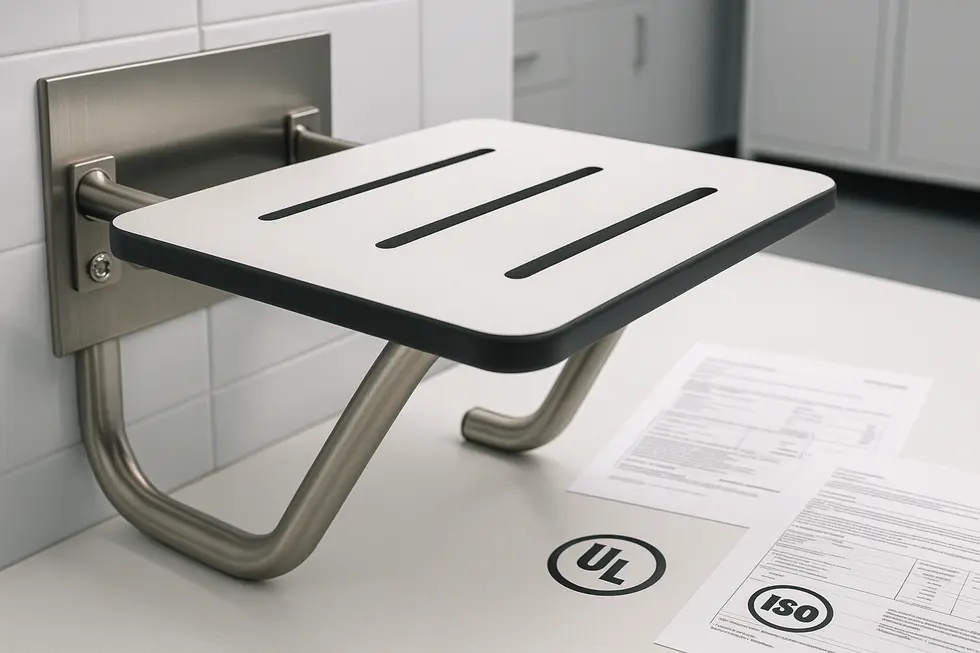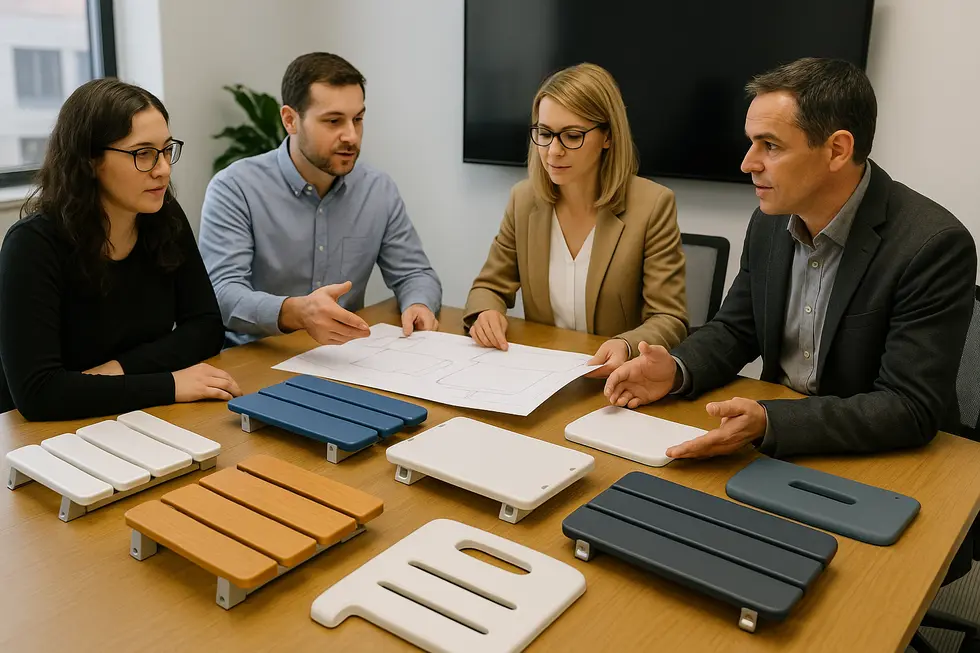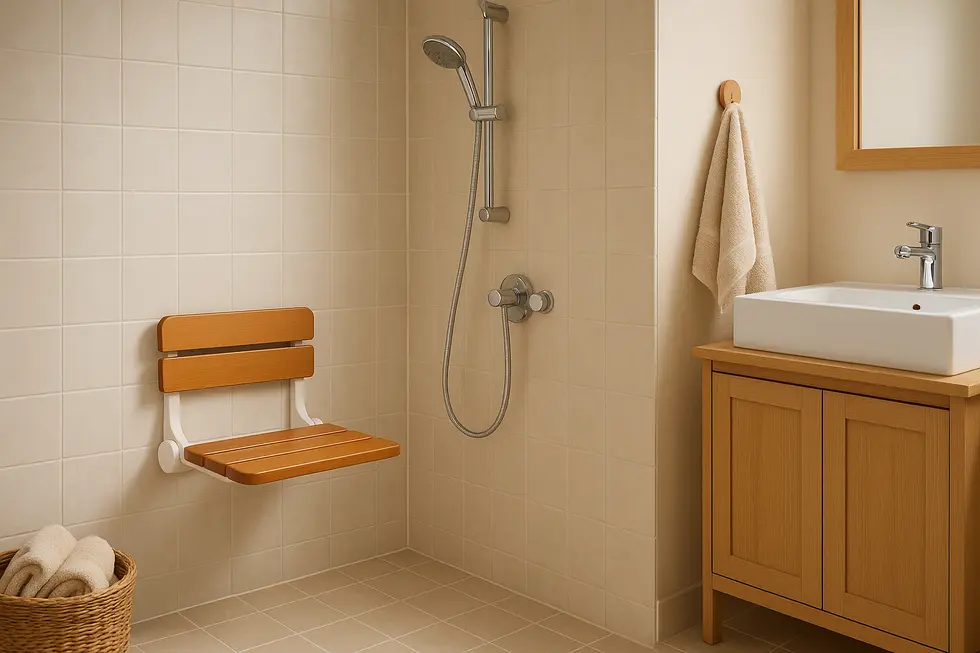Shower Seat
Designing Safety and Comfort: Wholesale Wall-Mounted Shower Seats
Enhancing bathroom safety and comfort starts with the right products, especially for families with elderly or disabled members. Wall-mounted shower seats not only offer essential support but also add a layer of security in the bathing environment. In this exploration, we delve into the market dynamics affecting these wholesale products, analyze the vital regulatory standards and material specifications, and discuss enticing customization opportunities available to suppliers and buyers in the industry.
From Factory Floor to Shower Stall: Navigating Market Forces and Supply Chains for Wall-Mounted Seats

A wall-mounted shower seat may seem like a simple fixture, yet the journey from raw stainless-steel coil to a folded panel in someone’s bathroom is shaped by complex market dynamics. For wholesalers, understanding these forces is as critical as assessing load-bearing capacity.
Rising demand is primarily demographic. Populations are ageing worldwide and home-renovation budgets increasingly prioritise accessibility. This steady pull gives manufacturers confidence to purchase 304 stainless steel in bulk, but prices of nickel and chromium—the alloy’s costly ingredients—can swing 10 % within a quarter. Savvy buyers therefore negotiate index-linked contracts or staggered deliveries to mitigate volatility.
On the supply side, capacity has expanded across Southeast Asia, yet quality still varies. Third-party factory audits, weld-penetration tests and salt-spray corrosion trials help wholesalers separate reliable partners from opportunistic brokers. Passing documents alone is not enough; many distributors request first-article samples and retain destructive-test reports as ongoing benchmarks.
Logistics adds another layer. A single pallet holds roughly 80 folded seats, but the powder-coated variants require thicker protective film, lowering pallet density and nudging freight costs upward. When margins are razor-thin, optimising carton design or consolidating SKUs inside high-cube containers often covers an entire percentage point of profit.
Regulatory compliance intersects every stage. Seats destined for the U.S. must withstand 250 kg static load to satisfy ADA guidelines, while Australia’s AS1428 stipulates a different mounting-hole pattern. Multiregional distributors therefore push factories toward modular sub-assemblies—one bracket style, multiple deck options—to keep inventory lean yet locally compliant. After installation, consumers still judge the experience on comfort and security. Directing contractors to detailed online resources about installation best practices can minimise field failures and costly returns.
Finally, consider after-sales visibility. QR codes on cartons that link to assembly videos or spare-part ordering pages shorten service cycles and generate data for future product iterations. In a market where safety items rarely attract emotional branding, operational excellence becomes the differentiator.
Source: https://noryehardware.en.made-in-china.com/product/NEhYJLxDaKkX/China-Norye-Folding-Shower-Seat-Wall-Mounted-Bathroom-Chairs-Elderly-Shower-Chair.html
From ISO 17966 to 304 Stainless: The Compliance Blueprint Behind Wholesale Wall-Mounted Shower Seats

Wholesale buyers rarely see the quiet dialogue that unfolds between engineering laboratories and government offices, yet that exchange determines whether a wall-mounted shower seat keeps users safe for a decade or fails in its first year. At the centre of that dialogue is ISO 17966:2016, the benchmark that specifies structural integrity, 150 kg load thresholds, rounded edges, and hygiene-friendly surfaces for assistive bathing equipment. Because these seats serve older adults and people with limited mobility, auditors treat each weld, hinge, and fastener as potential life-support equipment. A missing certificate can stall an entire shipment at customs, so reputable factories integrate compliance testing into every production batch.
Regulations alone, however, do not hold a person’s weight—materials do. Grade 304 stainless steel remains the industry’s workhorse thanks to its high chromium content, which forms a self-healing oxide layer that resists corrosion from hot water and harsh cleaners. Tubes with 1.2 mm or thicker walls prevent flexion without adding bulk, while phenolic or laminated plastic decks provide a warm, slip-resistant platform even when soap films appear. Some facilities add removable cellular-moulded pads to meet healthcare directives that call for pressure-relief surfaces. Beyond raw composition, buyers should request mill certificates and salt-spray test reports, ensuring that steel and coatings will survive humid hotel spas as reliably as hospital wet rooms.
Customization must walk a tightrope between marketing flair and regulatory boundaries. Adjustable seat heights (520–600 mm), optional fold-down support legs, and alternative tube diameters are usually permissible, but any change that affects load paths demands fresh testing. Smart wholesalers keep a technical file that pairs each variant with its corresponding lab report; doing so speeds approvals in regions such as Australia and New Zealand, where local authorities mirror ISO standards yet impose their own labeling rules. For additional due diligence, consult this comprehensive safety checklist before signing off tooling drawings.
Finally, insist on installation packages that include stainless lag screws, wall anchors rated for masonry and stud walls, and bilingual manuals. Clear mounting illustrations not only reduce job-site errors but also satisfy consumer-product regulators who view ambiguous instructions as a safety defect.
Tailor-Made Solutions: How Customization and OEM Partnerships Shape the Wholesale Wall-Mounted Shower Seat Market

Wholesale buyers rarely order shower seats “off the shelf.” Facility managers, medical-supply distributors, and hospitality chains each face distinct space constraints, aesthetic directions, and regulatory checklists. That reality has elevated customization from a pleasant extra to a baseline expectation.
First, dimensions matter. A senior-living provider may request an extended 550-mm deck to accommodate carers, while a boutique hotel chain may demand a compact 350-mm model that disappears discreetly into a designer wet room. Manufacturers routinely adjust frame width, leg depth, and even hinge geometry without sacrificing load-bearing ratings. Stainless-steel tubing is offered in 25, 32, or 38 mm diameters; buyers balance a slimmer profile against the reassuring heft of thicker gauge.
Surface finishes follow the same à-la-carte logic. Powder-coated white blends into clinical environments; brushed satin complements contemporary chrome fittings; bold matte blacks speak to luxury spas. Because the structural core is generally grade 304 stainless steel, colour shifts never compromise corrosion resistance. Seating panels can be specified in high-pressure laminate, warm-touch phenolic, or textured ABS. Some clients further enhance comfort with removable EVA cushions or integrate antimicrobial additives for healthcare tenders.
Beyond visible changes, many orders involve quiet engineering tweaks: pre-drilled fixing holes that align with regional stud spacing, or a self-locking hinge calibrated to the local accessibility code. These alterations shorten installers’ time on site and protect wholesalers from warranty disputes.
Original-equipment-manufacturer (OEM) programs push personalisation even further. Here, the factory becomes an invisible partner, producing a seat that ships in a carton branded entirely with the wholesaler’s logo, colour palette, and multilingual manuals. For newcomers, OEM bypasses the capital drain of tooling, compliance testing, and ISO audits; for established brands, it expands catalogues without overloading internal production lines. Minimum order quantities—typically 20 units—keep entry thresholds reasonable, while lead times of 15-35 days suit project schedules.
Staying informed about evolving hinge mechanisms, slimmer wall brackets, and recyclable plastics is crucial. An excellent primer on design trends can be found in this discussion of the modern folding wall-mounted shower seat design trends.
For technical drawings, sample requests, or to explore full white-label cooperation, review the detailed specifications provided by a leading audited manufacturer.
Final thoughts
Understanding the complex landscape of wholesale wall-mounted shower seats empowers suppliers and buyers to make informed decisions that enhance safety and comfort. By recognizing market dynamics, adhering to stringent standards, and exploring customization opportunities, businesses can effectively serve families in need of supportive bath solutions. The comprehensive approach ensures products not only meet current requirements but are also adaptable for future needs.
Experience a new standard of clean with PEGABidet—designed for comfort, safety, and independence. Join thousands who trust us to make personal care simple and dignified. Contact us contact@pegabidet.com
About us
PEGABidet is a brand owned by L.A NEXTGEN LLC, based in California. We design intuitive, hygienic, and accessible bathroom solutions that prioritize safety, dignity, and independence. Our mission is to make personal care effortless and empowering for people at every stage of life.

